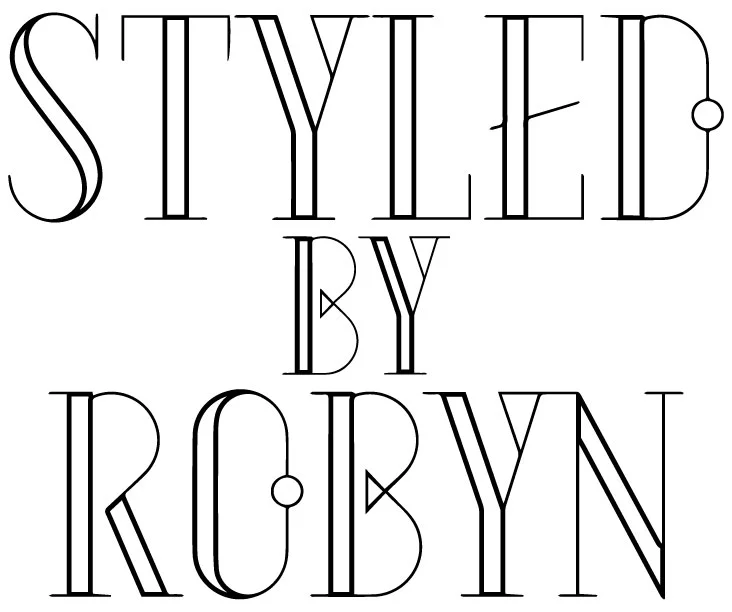I used to be the Queen of Fast-Fashion. H&M, Forever21, Gap, Topshop, Zara discounts. I never met an insanely cheap deal saturated in synthetic threads pretending to be luxe (and let's be honest, doing a pretty damn good job of it) I didn't support. Especially as a near-starving student/creative independent barely making ends meet in the City That Never Sleeps--adamant on hitting rock bottom in style. Slowly, however--a pastime I'd neglected along with my southern roots--I began to mentally take stock of not only the derelict shape of my closet; filled to the brim with cheap tops I'd worn once or not at all, due to ill fit and perpetual pilling, but also these mass retailers I was blindly supporting to appease a buck. One particular moment of enlightenment I'll never forget was the Fall of 2012. On my way to class one chilly Wednesday afternoon, realizing I had time to kill, I popped into a Zara flagship store on 5th Avenue to peruse their stock in outerwear. I'd barely reached the sales rack when I was overwhelmed with confusion and utter disappointment. Had a human tornado beaten me to the sale? Racks upon racks of seemingly lovely coats and jackets were tattered, makeup stained, zipper-less, and scarred; each of which still boasting a $100-200.00 sales tag. My high expectations of scoring super cute, affordable Zara fashions were now on the floor with broken buttons, missing from the clothes I no longer wanted to even try on. The array of evidence before me was telling. Practically every bit of these mass-produced goods weren't meant to last a month out of the store, let alone a sales rack. But of course not. People aren't shopping these attainable fashion chains for quality basics. They're frequenting them because of their ever-changing offerings of trendy items for less money. Clothes meant to wear to a party or the club, or on that hot date. Frocks that are otherwise meant to act as occasional accessories. Not everyday wear and tear. So what if that jacket or vest starts to shed, unravel, or is highly flammable. It costs as much as a New York City martini and it'll only see the light of day during the holidays. No worries there. But what about the real cost of making that little snazzy, affordable garment? The things we can't see hanging in our closets.
The next time you're up to speed on your Netflix queue and hankering for something new to discover, consider an original documentary, The True Cost. This film exposes the derelict factory conditions in places like Bangladesh, where the majority of fast-fashion is mass-produced within the worst environment conditions for far less than anything near a minimum wage. Where workers get screamed at and nearly beaten if they're unable to meet quota goals. Forget bathroom breaks or any kind of sick leave. This documentary is important because, inhumane production practices aside, the film also touches on how fast-fashion is killing the planet due to increased toxic smog, massive amounts of waste, and tremendous consumption of water. Fashion is officially the 2nd largest cause of global decline. CEOs of huge retailers like Zara are now billionaires, thanks to rising supply and demand from fashion lovers of the West (us). Meanwhile, these successful billionaires can't afford to pay for far superior production practices in parts of the world where it is laughably cheaper to set up shop. How on earth does that make any sense? It doesn't. And, as a lifer of the fashion industry, I simply cannot support these stores nor their practices any longer.
What, then, is a fashion lover to do when she can't afford Rag & Bone but has sworn off Topshop? Well, thankfully, I'm not utterly alone in this new mindful mission; my research has led me to believe there's others out there that have the same responsible wants and expectations, without having to sacrifice style and rent-money. Before I list out the best options and brands for guilt-free shopping however, be mindful of a few things first: Once a self-respecting woman or man hits the mid-thirties mark, a closet full of only Forever21 and H&M is no longer acceptable. Regardless of budget, young professionals should start collecting a solid supply of well-made basics, not the cheap stuff. This means at least one seasonally transitional jacket, a great pair of blue jeans, a little black dress and classic pumps, etc. When you start to get rid of the cheap stuff and replace them with better made items meant to last, the less you have to buy on a regular basis, and the less you're contributing to landfills. Even Beacon's Closet doesn't want your Zara shirt that's pilling on the side your purse usually hangs, and neither does the earth. Also, once you trade those no-name shoes in for a pair with a respectable moniker you'll wonder why you punished your feet with cheap soles for so long. You're investing in yourself when you buy clothes. It's time you started treating your body and overall image better.
Shopping I can get behind:
LuLu's Made in America: Super cute, trendy, and affordable. Nothing with a USA stamp on it was made through blood, sweat, urine and tears. Literally, not figuratively that is.. I've ordered from this online retailer countless times and have always been super happy after. Also, go America! $
ASOS' Green Room: Supports eco-friendly and sustainable fashion from around the globe, based in London. Cute, trendy. $ - $$
Zappos: Where I get practically all of my shoes, jeans (Levi's all day everyday, for their made-in-the-USA promise to their stance on equality and politics), and jackets online. This company caters to both big designers and the smaller ones, but only the better of the bunch. Their customer service is killer too, with up to 365 days in free returns and shipping. $ - $$$
Everlane: Super attractive basics. Ethically made. Brilliantly priced. $$ - $$$
Nordstrom's Made in the USA: Both online and in-stores they carry a number of big and small brands that are made locally. Cute, stylish. $ - $$
American Apparel: Former CEO being a perv aside, this company primarily produces their goods in the Sunshine State. $ - $$
Modcloth: Vintage inspired women's clothing. A ton of it is made locally, or simply repurposed. They only carry responsible brands. Sweet, feminine. $$
Reformation: My new favorite brand and practically the perfect fashion label. Everything is made either in LA or strictly sourced from the most responsible vendors, and remade from vintage garments. Every piece is super cute and pretty too. This is the latest brand that all the current fashion bloggers are scrambling to get. Most of the pieces are a little pricey, but compared to local hip brands like Rag & Bone, it's a deal. And, again, it's about collecting garments that are meant to last, and are perfectly made. We're trying to transition away from throw-aways, remember. $$ - $$$
The Real Real: This is one of the best online consignment shops out there delivering high-end designer fashion for less than half the cost. Each item lists the condition it's in and returns are easy. For Louboutin and Chanel lovers and those seeking real investment pieces, this is the place. Besides, experts are swearing that an Hermès Birkin bag has a better ROI than fine art these days. $$ - $$$$
Etsy: One-of-a-kind, handmade, and vintage fashion here. One of the most straightforward and eclectic curations out there. Great for accessories. Also, one of the kindest e-tailers/companies in giving back, and employee treatment. $ - $$$
The Outnet: Net-a-Porter's more affordable little sister. High style and trendy. High designer too. I strictly shop sales here and you can definitely find killer deals. Again, it's about new investment pieces that don't break the bank. $$ - $$$$
Madewell: They started as a spin-off to J. Crew, focusing on selvedged denim and solid basics but have branched out to more stylish offerings too. This company, along with J. Crew, is one of the more "mindful" mass retailers out there, instilling more eco-friendly production methods into their merchandise. They're not perfect, but they're at least trying to be better and improving. $$ - $$$
Schott: For men and women who want serious outerwear that will last many lifetimes, like the ultimate biker jacket. Decades old and homegrown right here in NYC. Stick to the sales. $$$
The above is primarily all online shopping, which is the most popular method today. But for those who prefer shopping in-person your options are endless there too. I know a number of people that have zero patience for vintage and/or thrifting and honestly, I'm sorry about that. You're missing out on so many opportunities to find killer deals on vintage Halston, Yves Saint Laurent, and Burberry (I found a barely worn original trench for just $55.00 at Beacon's Closet in Williamsburg, for pete's sake..). Not to mention, recycling practically-new clothing is the greatest gift one can bestow on the planet, and almost everything made prior to the 70s was near pristinely crafted. I can't recommend these places enough:
Beacon's Closet; Buffalo Exchange; Housing Works; What Goes Around; Crossroads Trading Co.; Ina, etc. Also, for the ladies that believe their curves won't fit into vintage finds, you're just plain wrong. The majority of these clothes were built for your amazing bodies. Now, shoes could pose more of a problem, as sizes back then were often narrower.
Also, for my in-store shoppers, keep in mind that the greater the designer the better the product. Make major sales your greatest monthly event. Stores like Barney's, Bergdorf's, Neiman's, and Saks carry smaller collections from high-end designers, using the best products and practices. You'd be surprised at the serious deals you can find during their end-of-season discounts. Also, as I mentioned above, Nordstrom maintains an entire department devoted to locally focused brands, and Bloomingdale's has a 100% collection, which is a curation of more affordable designers handpicked by their fashion directors for their responsible practices. Specialty boutiques like Scoop, Bird, and Intermix carry the best brands as well, albeit you're also going to get high quality, at high prices. But there's always a sale!!
I selected the most attractive, attainable, and relatable brands and retailers here, leaving out the Free Trade & Ethical brands that are a little more "organic". These labels are the kindest out there by far, sustaining hand-weavers in Ghana and Peru, which makes clothing that's perfect for the most "natural" of dressers. Not all city folk can pull off these styles, however, so I went in search of those smarter fashions that can easily replace the likes of H&M and Zara. By all means, shop these stores if you wish, I truly damn no one that chooses to do so. I just ask that until these brands can encourage a more economically responsible mentality that's also more human--something I'm positive they'll instill eventually--that you at least look to other, kinder offerings occasionally.
Whatever your shopping stance, remember that you deserve the best, and the resistant shoes to carry you through!
Happy guilt-free shopping - xx RR
























